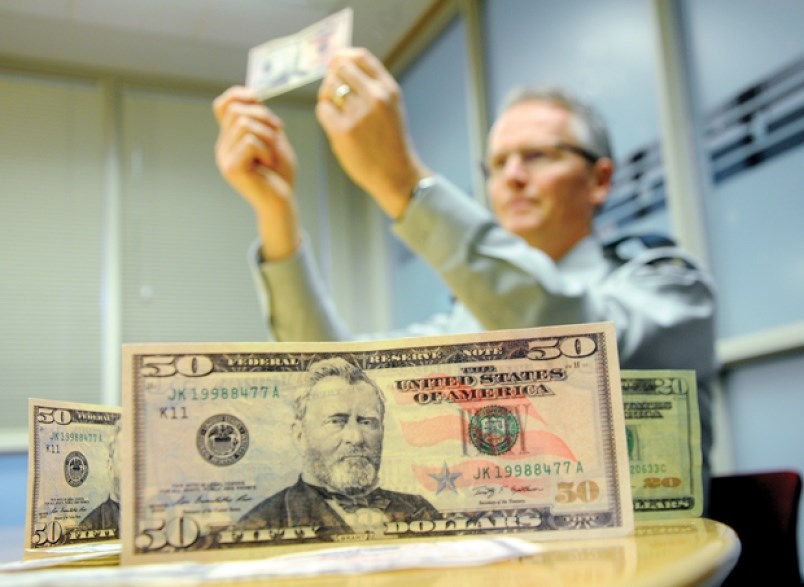A man jailed for spending counterfeit cash at businesses around the North Shore has failed in a bid to have his convictions overturned on appeal.
Roy Gene Hopkins was handed a one-year jail sentence in September 2016 after being convicted of numerous charges, including three counts of fraud, two counts of possession of counterfeit money and two counts of spending counterfeit money.
On Dec. 11, 2015, Hopkins bought a prepaid MasterCard from a Loblaw’s using two phony American $50-bills. Late that night, he tried using the prepaid credit card to check into the Comfort Inn on Capilano Road but the card was declined. He opted to pay with $160 in U.S. cash, all of it fake. Before the night was out, he spent two more fake $20s on cigarettes and snacks at the nearby Petro Canada station.
Clerks from the motel and gas station quickly became suspicious over the funny money and called police. North Vancouver RCMP members arrested Hopkins the next morning and found him with another counterfeit $50 bill and $10 bill.
After he was released, Hopkins went back to the Loblaws to complain that the MasterCard he had purchased the day before was not working. The manager there told him the bills were fake and that he would be calling police.
Hopkins appealed his conviction on the grounds that the trial judge could not reasonably have concluded that Hopkins knew the bills were counterfeit, which is required beyond a reasonable doubt to secure a conviction.
But a three-judge panel at the Court of Appeal unanimously rejected that argument.
“In this case, the trial judge did review the original exhibits. He concluded that the bills ‘do appear to be counterfeit’ and did not ‘feel like real money,’ Justice Richard Goepel wrote in his decision.
Goepel added that the clerks from the motel also found it “obvious” that the bills were fake and the gas station attendant also checked them under a black light within minutes of receiving them.
“This was a strong and compelling circumstantial case where the judge was entitled to draw the inferences he did. The verdict was one that a properly instructed trier of fact, acting judicially, could reasonably have rendered,” Goepel said.
The court did, however, strike down one of Hopkins’ convictions for possession of counterfeit money on the grounds that he was also convicted for spending that same money. Under Canadian law, the accused should only be convicted of the more serious offence when two charges stem from the same incident.



